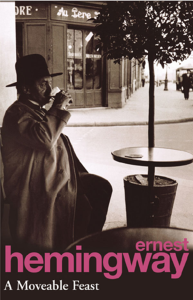Things got a little heated at the last meeting of our Sci-Fi/Fantasy critique group. One member said that the manuscript under review did not work. The reason, he insisted, was that a scene lasting two paragraphs of a ten-page story was exposition, and as everyone knows, “showing is better than telling.”
I disagree. Sometimes you enhance the pace with a little exposition. For example, does the reader really want a vivid, sensuous accounting of your protagonist fixing dinner? I’d say no — unless it’s central to the story.
And that’s the thing. A vital part of the writing craft is knowing when to apply the right rule. Even the best rule should not be mindlessly followed off a cliff.
Bill Daley, the Chicago Tribune’s food writer, recently offered what I call a “meta-recipe” for aspiring cooks. He calls it “10 steps six cookbook pros say you should follow to get the most from a recipe.” These steps offer sound advice for writers, too, about learning how to apply the rules of writing.
For example, Daley’s first meta-rule is: Cook! The more you cook, the more you will learn and the easier it will be to spot a recipe that’s “worthwhile or intriguing.” And the more writers write, the more “feel” they get for what works and why.
Daley also counsels that cooks should Listen! You want to hear the recipe’s “voice.” Judith Jones, the cookbook editor behind Julia Child and other cooking legends, says she wants the recipe to tell her “whoever wrote it had really done it and makes me feel the taste and texture just by reading it.” So a writer seeking direction should heed the insights of someone with actual publishing experience rather than someone who has not.
Daley’s best advice for cooks and writers, in my opinion, is Consider the audience. Should you substitute a jalapeno for the habanero your recipe calls for? Would Aunt Doris prefer a tangy dish rather than the blazing one your recipe calls for? And wouldn’t your potential readers prefer you to tone down your violence or sex scene?
Developing such judgment comes from experience, careful listening, and caring. Good advice for any craft.

Great post. There’s a big difference between IMITATING an expert and THINKING like one.
LikeLiked by 2 people
It’s very smart how you compared the writing process to the cooking process. It’s nice to read someone that does not have some hard and fast rule about writing. It does depend on the reader and on what you want to accomplish in the book. “Even the best rule should not be mindlessly followed off a cliff.” Smart!
LikeLiked by 2 people
Cormack,
And it’s great to hear from you again. As to your summary: “There’s a big difference between IMITATING an expert and THINKING like one.”
Once again, I’m left wishing I’d said that!
LikeLiked by 1 person
Pleasant Street said:
“Even the best rule should not be mindlessly followed off a cliff.” Smart!
Yeah, but I had to learn that by marching off a few cliffs.
LikeLiked by 1 person
Apt comparisons, Mike. Cooking to Writing. I like it. Maybe it’s time to take that old manuscript off the back burner and start cooking up a new novel. 🙂
LikeLiked by 1 person
Ha!
LikeLiked by 1 person
The cooking/writing rules analogy works so nicely! It reminds me of an old favorite from the Chicago Manual of Style. After listing a few of the usage rules we’d expect from this august style book, the editors add this final dictum: “Break a rule when it doesn’t work.” Now there’s a good compass for how to live as well as how to write!
LikeLiked by 1 person
Daedalus Lex,
Agreed. Of course, we have to thoroughly understand the rules before attempting to ignore them.
LikeLike
True, Mike, especially with grammar. With life, I confess to pre-emptively breaking a few rules 🙂
LikeLike
Well said!
I’ve always struggled with the “who is this for,” question. My answer always ends up being “people who would like this sort of thing.”
LikeLiked by 1 person
Nathan Thompson,
Can’t argue with that…
LikeLike
Thanks for a great blog, Mike. I (naturally) agree that a pinch of exposition is sometimes just the spice that a story needs.
LikeLiked by 1 person
Amazing Blair Peery,
Great to hear from you. Yeah, while writing does have some commandments (don’t bore the reader, for example), it has many more “suggestions” and “guidelines.” It can’t be reduced to an ideology or formula.
LikeLike
Reblogged this on Notes from An Alien and commented:
Show? Tell? Follow the “Rules”?
Today’s re-blog draws parallels between Writing and Cooking 🙂
LikeLike